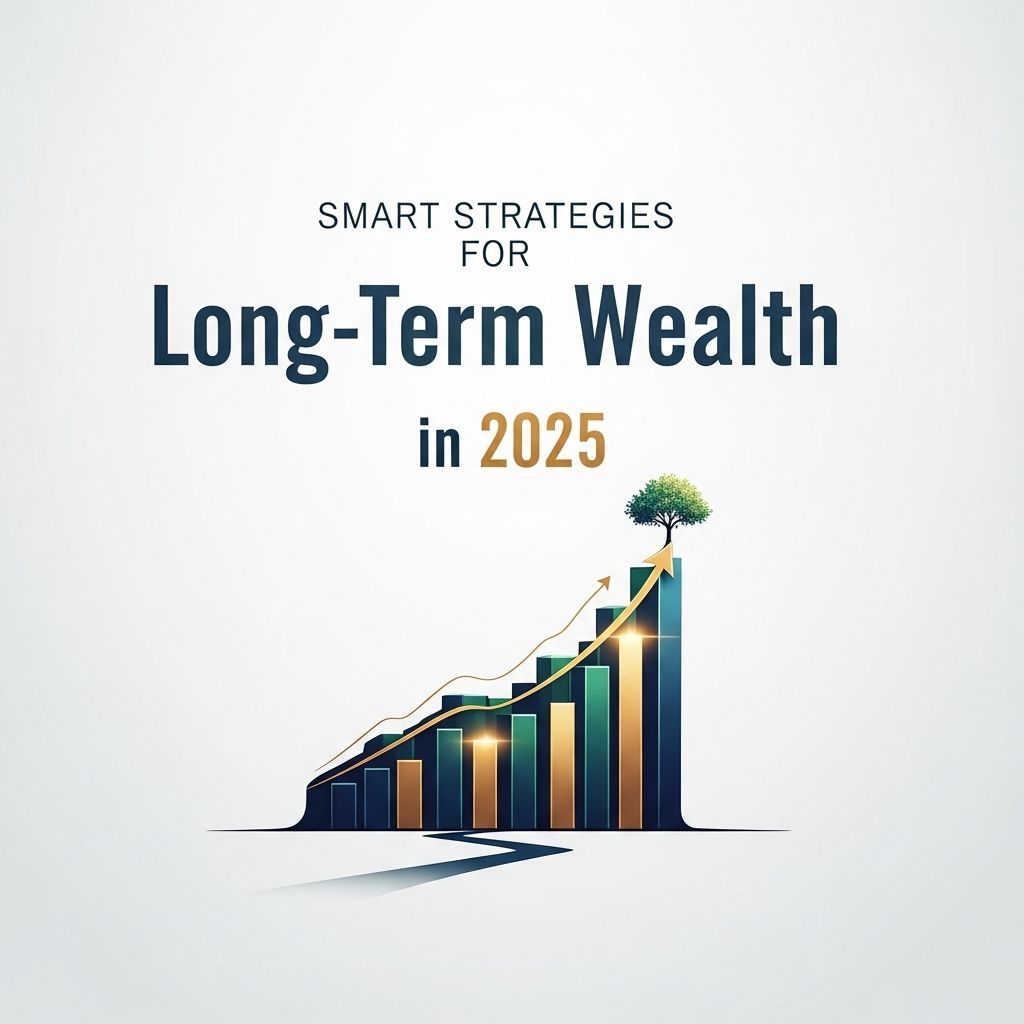As we navigate through the complexities of the modern financial landscape, understanding how to build and maintain long-term wealth has become more critical than ever. With the advent of new technologies, changing market dynamics, and shifting economic paradigms, it is essential to adopt smart strategies that can withstand the test of time. This article explores effective approaches for accumulating wealth in 2025 and beyond, utilizing a blend of traditional investment principles and innovative financial tools.
Table of Contents
Understanding Wealth Accumulation
Wealth accumulation is not merely about making money; it’s about creating a sustainable financial future. The journey to financial security involves:
- Setting clear financial goals.
- Diversifying income streams.
- Investing wisely in various asset classes.
- Continuously educating oneself about financial markets.
The Importance of Goal Setting
Effective wealth-building begins with setting specific, measurable, achievable, relevant, and time-bound (SMART) goals. Here are the steps to create impactful financial goals:
- Define what you want to achieve (e.g., buying a home, retirement, starting a business).
- Determine the timeframe for achieving these goals.
- Estimate the financial resources required.
- Review and adjust goals periodically.
Diversifying Income Streams
Relying on a single source of income can be risky, especially in unpredictable economic climates. Consider these strategies for diversifying your income:
Investment Opportunities
Investing in different asset classes can provide stability and growth potential. Here are some options to consider:
| Asset Class | Risk Level | Return Potential |
|---|---|---|
| Stocks | High | High |
| Bonds | Low to Medium | Medium |
| Real Estate | Medium | Medium to High |
| Cryptocurrencies | High | Very High |
Passive Income Streams
Creating passive income is a smart way to diversify. Here’s how:
- Investing in rental properties.
- Creating digital products (e-books, online courses).
- Starting a blog or YouTube channel with monetization.
Investment Strategies for 2025
As we look towards 2025, certain investment strategies are expected to thrive. Here are some key areas to focus on:
Technology and Innovation
Investing in emerging technologies can yield substantial returns. Consider the following sectors:
- Artificial Intelligence (AI)
- Renewable Energy
- Biotechnology
- Fintech Solutions
Environmental, Social, and Governance (ESG) Investing
More investors are prioritizing ethical considerations. ESG investing focuses on:
- Environmental sustainability.
- Social responsibility.
- Good corporate governance.
Investments in companies that align with these values not only contribute to societal good but can also enhance long-term profitability.
Building a Resilient Portfolio
A resilient investment portfolio is vital for long-term wealth protection. Here are strategies to fortify your portfolio:
Asset Allocation
Utilize a balanced asset allocation strategy that suits your risk tolerance and time horizon:
- Conservative: 60% bonds, 40% stocks.
- Moderate: 50% stocks, 30% bonds, 20% real estate.
- Aggressive: 80% stocks, 20% alternative investments.
Regular Portfolio Review
Consistently reviewing your portfolio can help you stay on track:
- Assess performance against your initial goals.
- Rebalance asset allocations as necessary.
- Stay informed about market changes that may affect your investments.
Utilizing Technology in Wealth Management
Technology has revolutionized wealth management, providing tools that can simplify and enhance decision-making:
Robo-Advisors
Robo-advisors offer automated portfolio management at lower costs. They provide:
- Personalized asset allocation.
- Tax-loss harvesting.
- Low fees compared to traditional advisors.
Financial Planning Apps
Apps can help you keep track of your spending, saving, and investment goals:
- Budgeting apps (e.g., Mint, YNAB).
- Investment tracking apps (e.g., Personal Capital).
Staying Informed and Educated
The financial landscape is ever-evolving. Here’s how to stay ahead:
Regularly Read Financial News
Subscribing to reputable financial news outlets can provide insights into market trends. Recommended sources include:
- The Wall Street Journal
- Financial Times
- Bloomberg
Continuous Learning
Invest in your financial education:
- Take online courses in finance and investing.
- Attend webinars and workshops.
- Join investment clubs or forums.
Final Thoughts
Building long-term wealth by 2025 requires a strategic approach that combines traditional financial principles with modern innovations. By diversifying income streams, investing in promising sectors, and leveraging technology, individuals can create a resilient financial future. Always remember that the journey to wealth is a marathon, not a sprint, so stay informed, adapt to changes, and remain committed to your financial goals.
FAQ
What are effective investment strategies for long-term wealth in 2025?
Diversifying your portfolio across stocks, bonds, real estate, and alternative investments can help mitigate risks and enhance returns over the long term.
How can I build a sustainable savings plan for the future?
Establishing a monthly savings goal, utilizing high-yield savings accounts, and automating your savings can contribute to a robust financial future.
What role does budgeting play in long-term wealth accumulation?
Creating and sticking to a budget allows you to track expenses, identify saving opportunities, and prioritize investments for wealth growth.
How can I leverage technology for wealth management in 2025?
Utilizing financial apps and robo-advisors can provide personalized investment advice, automate savings, and help you stay on track with your financial goals.
What is the importance of financial education for building wealth?
Understanding financial concepts and market trends equips you to make informed decisions, optimize investments, and avoid common pitfalls in wealth building.
How can I prepare for economic uncertainties while building wealth?
Maintaining an emergency fund, staying informed about market conditions, and having a flexible investment strategy can help you navigate economic fluctuations.









